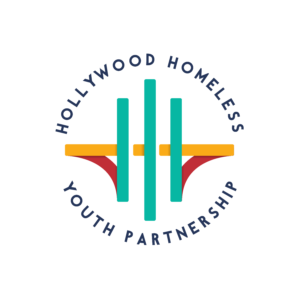Guide for Elected Officials
The Hollywood Homeless Youth Partnership (HHYP), a collaboration of youth-serving agencies, is addressing the urgent issue of youth homelessness in the community. The agencies served around 2,200 young people last year, but housing resources remain inadequate. Structural racism and discrimination disproportionately affect Black and LGBTQ+ youth, necessitating a focus on these groups for effective solutions.
Key Challenges Faced:
- Limited Understanding– The HUD definition of homelessness hampers an accurate understanding of youth homelessness’s extent.
- Lack of Data– Effective housing strategies and success tracking for young people are lacking.
- Inadequate Vulnerability Assessment– Adult-based vulnerability criteria don’t suit the unique challenges pushing youth into homelessness.
- Lack of Youth Involvement– Genuine youth leadership is needed to create responsive service systems.
- Communication Challenges– Challenges arise in managing young people through the homeless services system.
Proposed Solutions:
- Preventing Homelessness- Focus on strategies preventing homelessness, including changes to Child Welfare systems and tenant protections.
- Staffing Support– Invest in competitive salaries for staff to enhance program effectiveness.
- Tailored Outreach– Design outreach strategies specific to young people’s distinct needs.
- Mental Health– Non-police responses to mental health crises should consider young people’s unique needs.
Needs and Policy Actions:
- Youth-Centric Housing– Develop housing options tailored to young people’s unique needs.
- Salary Funding– Allocate more funding for staff salaries to reduce turnover and enhance program continuity.
- Mental Health Support– Allocate resources for youth-focused mental health practitioners.
- Minor Support– Provide resources for homeless minors and families.
- Undocumented Youth– Address the needs of undocumented youth accessing services.
- Peer Support– Back programs supporting peer mental health support.
- Parenting Youth– Support pregnant and parenting young people with tailored housing programs.
- Empower Youth– Adopt the “Young People to the Front” platform, advocating for youth-targeted funding and services, housing options, and decriminalization of homelessness.
The full memo can be accessed [here]. The HHYP is eager to collaborate with elected officials to create effective solutions to youth homelessness, considering its unique challenges and the diverse needs of young people in the community.



